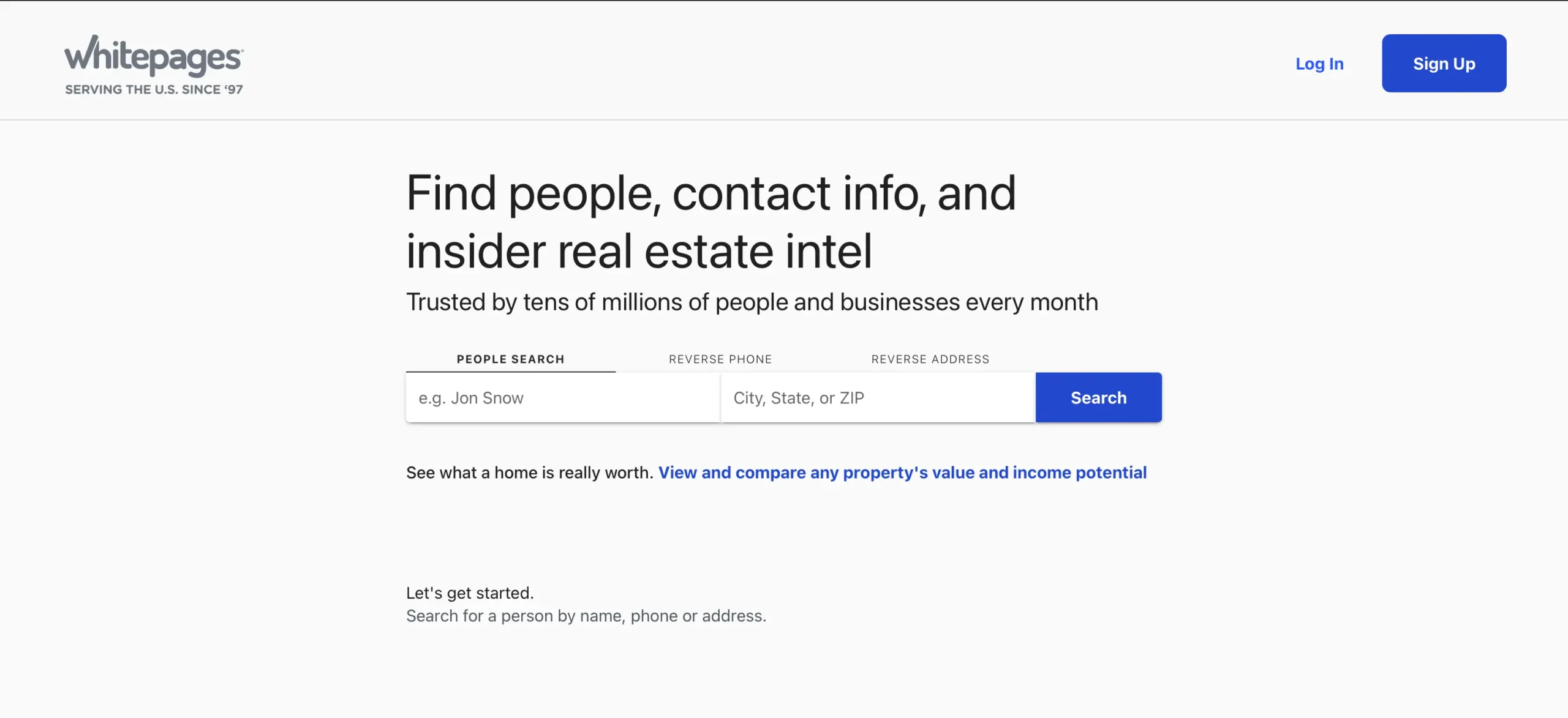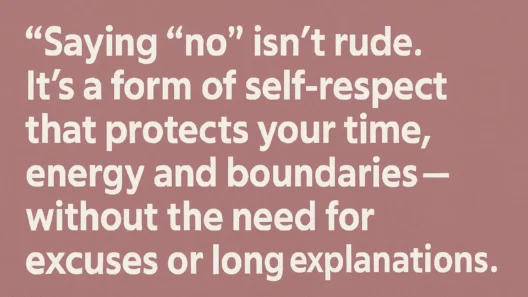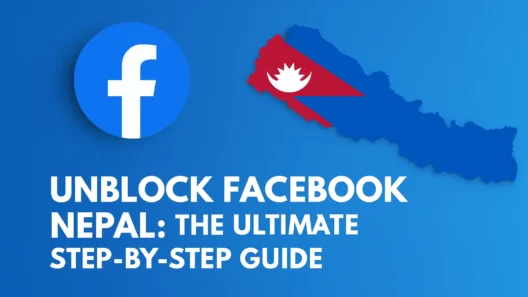f you’ve ever Googled your name and found your address, phone number, or even relatives listed for free on sites like Whitepages, you’re not alone. That instant gut-punch? Been there. People search sites like Whitepages are in the business of collecting and selling your personal data – and honestly, it’s kind of creepy how much they know about us.
But here’s the thing: you can take back control. And I’ll show you, step by step, exactly how to opt out of Whitepages and why it matters more than ever.
What Is Whitepages and Why Should You Care?

Imagine a massive online phone book from the 90s, except now it’s worldwide and it never forgets a thing. Whitepages is one of the largest “people search” databases on the internet, scraping info from public records, social networks, and sometimes sketchy sources. If you live in the US (or even if you’ve just visited), your data is probably there – names, phone numbers, emails, addresses, possible relatives, maybe even your age.
Whitepages is only the tip of the iceberg. Dozens of similar sites exist: Spokeo, MyLife, Intelius, TruePeopleSearch, and more. The kicker? Once your details are online, they spread like wildfire – and you barely have any say.
Why Privacy on People Search Sites Is a Big Deal
Let’s get real. It’s 2025 and everyone’s talking about AI, facial recognition, and hacking, but the #1 threat to privacy is often old-school data brokering. Here’s why you should care about your data on sites like Whitepages:
- Identity Theft & Fraud: Scammers love these databases. Your full name, birthday, and address? That’s gold for identity thieves.
- Stalking & Harassment: Anyone with your details can track you down. Ex-partners, random strangers, weird neighbors… you get the idea.
- Annoying Spam & Robo-Calls: Once your phone/email is out there, expect endless spam calls and phishing attempts.
- Job & Insurance Issues: Some employers and insurers actually check these records when making decisions about you.
- Data Reselling: Your information is sold, resold, and recycled forever.
And here’s the worst part: even if you’re careful with what you post, data brokers buy and sell info from each other, making it feel almost impossible to stay private.
Step-by-Step: How to Opt Out of Whitepages (2025 Edition)
Alright, let’s roll up our sleeves. Here’s my no-BS, step-by-step guide to removing yourself from Whitepages. (This works for the free section; Whitepages Premium has a different process – let me know if you want that too.)
1. Find Your Listings
- Go to Whitepages.com.
- Enter your full name and city/state.
- Click “View Details” or “View Full Report” for each profile that might be you (yes, there might be more than one!).
- Copy the URL of every listing you want removed.
2. Start the Opt-Out Process
- Scroll to the very bottom of the Whitepages homepage.
- Click on “Do Not Sell My Personal Information.”
- Paste the first URL of your record into the opt-out form.
- Click “Next” and verify that the listing is correct.
- Click “Remove Me.”
- Choose your reason for removal (don’t overthink it).
- Enter your phone number. You’ll have to verify via an automated call.
- Click “Call Now to Verify” and answer the call.
- Enter the verification code you receive on the website.
Pro Tip: Repeat the process for every single listing that belongs to you (Whitepages loves duplicates).
3. Double-Check & Repeat
- Not all listings are deleted instantly. Some may reappear.
- It’s smart to check back after a few weeks and redo the process if needed.
Can’t Be Bothered to Do It Manually? Use Incogni
Here’s where things get way easier. If, like me, you don’t have time to chase dozens of data brokers every month, try Incogni. Incogni automatically sends removal requests to dozens of data brokers (including Whitepages and even their “hidden” partners) on your behalf.
Why I recommend Incogni:
- Removes your info from 100+ data brokers.
- Offers a Family & Friends plan (protect up to 4 people).
- Monitors the process for you – you can see which brokers got your request and which have complied.
- Offers a huge discount (50% off annual plans right now).
If you’re serious about privacy, this is the hands-off, “set it and forget it” solution.
How Data Ends Up on Whitepages (and Why It’s So Hard to Remove)
You’re probably wondering: How did my address, old phone numbers, or even relatives get on Whitepages in the first place? Simple answer: Public records, data brokers, and everything you’ve ever shared online.
- Public Records: Whitepages scrapes government records (property, court, marriage, voter rolls, etc.) that are publicly available.
- Third-Party Data Brokers: They buy data in bulk from companies you’ve shopped with, survey sites, app developers, even some banks.
- Social Media Oversharing: Every “which Harry Potter character are you?” quiz or public post is a data point for brokers.
- Your Past (and Present) Addresses: Even if you’ve moved a dozen times, that old apartment from 2010 could still pop up.
And here’s the kicker: Data spreads fast. Once it hits one broker, it bounces through the whole industry. You remove yourself from one, two more buy that same data tomorrow. Frustrating? Absolutely. Impossible? Not quite – but you need a plan.
Why Opting Out Is Never Fully “Done”
Here’s the cold, hard truth: Opting out isn’t a one-time job.
Data brokers and sites like Whitepages regularly update their records. Even after you delete your data, there’s a good chance it’ll show up again months later, especially if:
- You change phone numbers or addresses (this can create new profiles).
- You have multiple records under similar names (think: “Mike Smith” vs. “Michael Smith”).
- Public records update (property sales, court cases, marriages, etc.).
This is why tools like Incogni are a game-changer. They keep sending requests even after removal – kind of like having an automated privacy assistant fighting in your corner.
Reducing Your Digital Footprint (Beyond Just Whitepages)
Deleting yourself from Whitepages is a great start, but it’s only one slice of the privacy pizza. If you really want to keep your life private, here’s what I recommend (based on years of trial and error):
1. Opt Out from Other Major Data Brokers
Sites like Spokeo, Intelius, MyLife, BeenVerified, PeopleFinders, and TruePeopleSearch all have their own removal processes (and quirks). Most let you opt out for free, but some will try to upsell you on a “premium” removal. Don’t pay for data deletion – use legitimate free forms or Incogni.
2. Use a Privacy Tool or VPN
A VPN isn’t just for streaming Netflix in another country. It hides your real IP address, which can make it harder for some data brokers and trackers to tie your searches back to you. Some top VPNs for privacy (that I personally use and trust):
- NordVPN
- Surfshark
- ExpressVPN
- CyberGhost
- Private Internet Access
(And yes, using a VPN with Incogni is like wearing both a seatbelt and a helmet.)
| My 5 Best VPN for Privacy | Offer + Discount | URL |
|---|---|---|
| NordVPN | 77% off + 3 months free | Try NordVPN |
| ExpressVPN | 61% off + 6 months free | Try ExpressVPN |
| SurfShark | 87% off + 2 months free | Try SurfShark |
| CyberGhost | 83% off + 2 months free | Try CyberGhost |
| PIA VPN | 82% off + 2 months free | Try PIA VPN |
3. Be Smart About Sharing Personal Info Online
- Never post your real address or phone in public forums or social media bios.
- Use a “burner” email for sign-ups, contests, or subscriptions.
- Don’t fill out unnecessary forms (that “free giveaway” might just be harvesting your data).
4. Regularly Google Yourself
Search your full name, nickname, phone number, and addresses. Use incognito/private mode and check what comes up. If you spot new listings, act fast and send removal requests.
5. Monitor Your Credit and Bank Accounts
Identity theft is real. Even if you think your info “doesn’t matter,” it can be used to open fake accounts, apply for loans, or worse. Set up free credit alerts and regularly review your statements.
What Makes Incogni Different (And Why I’d Recommend It)
Most “data deletion” companies overpromise and underdeliver. Incogni is actually legit – they explain which data brokers have your info, what type (address, SSN, phone, etc.), and how the removal process is going. Plus, you can cover family or friends under one plan, so if you care about your kids’ or parents’ privacy, you can add them too.
- You can add up to 3 phone numbers, emails, and addresses per person.
- It covers the US and EU.
- Regular automatic requests (so your info stays deleted).
- Transparent dashboard – see what’s been removed and what’s still in progress.
Frankly, unless you enjoy manually opting out of 100+ data brokers every few months, this is the only method that actually saves time and works long-term.
Comparison Table: Manual Opt-Out vs. Incogni (Automation)
| Feature | Manual Opt-Out | Incogni |
|---|---|---|
| Time needed | High (hours per year) | Low (minutes to set up) |
| Number of brokers covered | 1 at a time | 100+ simultaneously |
| Works for family/friends | No | Yes (up to 4 people) |
| Automatic ongoing removals | No (manual repeat) | Yes (automatic resends) |
| Progress tracking | None | Dashboard with updates |
| Extra privacy features | No | Multi-address/email/phone coverage |
| Price | Free (but costs time/sanity) | Paid (big discount on annual plan) |
Final Tips: How to Stay Private (Even When It Feels Impossible)
Let’s be real—no matter what you do, total online privacy doesn’t really exist in 2025. But every step you take makes you less of an easy target.
- Use a VPN (seriously, every time you connect to public WiFi).
- Opt out of people search and data broker sites regularly.
- Set up Google Alerts for your name, phone, and addresses to get notified of new listings.
- Use Incogni for the heavy lifting if you value your time (plus, protect your family in one click).
- Educate your loved ones—the more people understand digital privacy, the safer we all are.
Conclusion: Take Back Control—One Step at a Time
Online privacy isn’t about paranoia—it’s about basic self-respect in a world that treats our data like a commodity. I’ve been through this process myself (more times than I’d like to admit), and I promise: every record you remove is one less path for scammers, spammers, or just nosy strangers. It’s worth it.
If you’re fed up with seeing your info plastered everywhere, don’t just shrug it off.
Take those five minutes and start with Whitepages—then keep going.
And if you want the fast lane to privacy (plus an excuse to stop worrying about it every month), Incogni is my go-to tool.
Privacy isn’t just for tech geeks—it’s for everyone.
Frequently Asked Questions About Whitepages Opt Out
Is it free to remove myself from Whitepages?
Yes! Whitepages (and most similar sites) legally have to offer a free opt-out process. Never pay someone just to click a button you can do yourself. That said, it does take time and patience—unless you automate it with something like Incogni.
How long does it take for my information to disappear?
Most opt-out requests take between a few days to several weeks to process. Listings can sometimes reappear if your info gets refreshed from public records or other brokers, so check back occasionally.
Can my information show up again even after opting out?
Absolutely. Data brokers are relentless. New records (from a move, marriage, property transaction, etc.) can trigger fresh listings. That’s why regular monitoring or automated removal tools matter.
Does removing myself affect my credit, employment, or anything legal?
No, opting out of Whitepages and similar directories has zero impact on your legal records, credit, or employment. You’re just making it harder for strangers and marketers to find your details.
Can I remove my relatives from Whitepages?
Not directly—each person has to request removal for themselves. But tools like Incogni offer family plans so you can cover your kids, spouse, or parents in one go.













